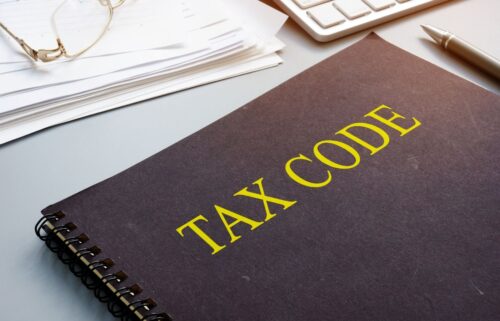Article
Private Equity Titans Eye a New Tax Perk

Article
Fact-based, data-driven research and analysis to advance democratic debate on vital issues shaping people’s lives.
Center for Economic and Policy Research
1611 Connecticut Ave. NW
Suite 400
Washington, DC 20009
Tel: 202-293-5380
Fax: 202-588-1356
https://cepr.net
Courtesy of the so-called carried interest loophole, private equity partners pay lower taxes than their secretaries on a good chunk of their income. But greed is an addiction, and the wealthy are always looking for new ways to get even richer: The new plan they are backing, first reported by Bloomberg, would increase the amount of debt that they are allowed to deduct from their business income.
Right now, these partners are taxed at half the normal tax rate on their earnings from selling portfolio companies. That leaves the rest of us paying higher taxes to fund all the things that government does — from national security to school lunch programs so no child goes hungry. This imbalance could soon get worse.
Businesses are currently limited in the amount of interest they can deduct from their income when they pay their federal taxes. That limit is 30 percent of the business’ income. Put simply, the more interest a business can subtract from its taxes, the lower its tax bill — and the higher the profits that go to its owners. With an administration and Congress openly sympathetic to the wishes of the business community, private equity sees this as a moment to increase the deduction for the interest they pay on the debt they pile onto the companies they own. As usual, they want to pull a fast one and slip this by a public not well-versed in business accounting principles.
In the accounting world, there are multiple measures of earnings. The one currently used in the tax code is earnings before interest and taxes, or EBIT. But there is another measure of earnings that typically provides a much higher assessment of a business’ earnings. That measure is earnings before interest, taxes, depreciation, and amortization are deducted. For private equity, which is well-known for using high levels of debt when it buys out companies, this could raise tax deductions for the companies they own by up to 15 percent and boost the profits of those companies. This is a tax break potentially worth billions to the private equity industry.
But it’s not only PE firms that would see lower taxes and higher profits. Most companies use debt to finance some of their activities, and these companies would enjoy the tax break too — and would see a small boost to profits. Lobbyists for private equity are taking advantage of this to try to get manufacturers – President Trump’s most favored industry – to join them in pushing for this tax break. And they are succeeding.
The American Investment Council, which represents the interests of the big PE firms – Blackstone, KKR and so on – has formed an alliance with the National Association of Manufacturers to lobby Congress to pass the tax break. Their argument that this is important for encouraging manufacturing in the US is finding a sympathetic audience among both Democratic and Republican lawmakers.
But our representatives in Congress need to resist the storyline about manufacturers. This policy would at best marginally encourage manufacturing and is much less impactful than targeted investment in the industry. The real winners here, who would walk away with most of the tax savings, are the PE firms who can further profit from forcing companies they buy into debt. The losers are the rest of us – the taxpayers who will need to make up a hole in tax receipts that a Treasury Department analysis estimates will be $175 billion over the next 10 years. If they succeed, we will end up paying higher taxes or seeing sizable cuts in programs we like and need.